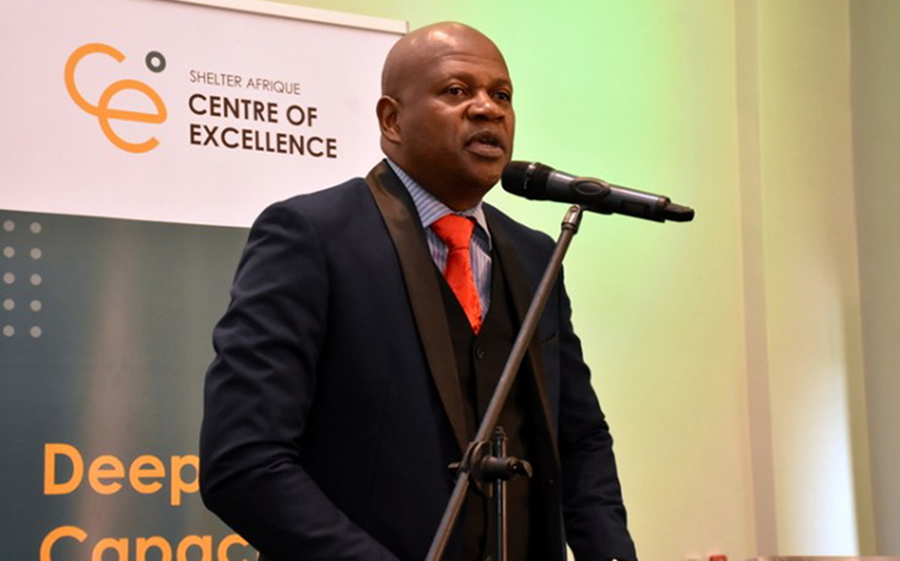Nigeria’s population explosion in the last three decades coupled with a sustained lack of investment in affordable housing in its rapidly expanding urban areas has created a housing deficit in the millions. With homeownership one of the most significant markers of a country with healthy growth, the deficit presents an opportunity to include construction-led economic expansion as a tool in Nigeria’s economic diversification arsenal.
It is not just Nigeria; lack of housing is an Africa-wide problem, with the deficit ranging from 30,000 in Burundi to 3.5 million in Egypt, according to the United Nations Population Division 2014 ‘World Urbanisation Prospects’ report. Other numbers to mull over: in Africa, the average rural household size is 5.4 members and 4.5 persons in urban households. The homeownership rate in Nigeria remains at 25%—the lowest among other African countries compared to countries like Kenya at 75% or South Africa at 56%.
This situation is especially evident in major Nigerian cities like Kano, Lagos, and Ibadan, where housing demand can increase by 20% annually. The limited housing supply exacerbates the already dire situation, with the housing pool availability versus demand ratio pegged at 10%. The situation is further compounded by developers struggling to complete their projects, bogged down by largely unfavourable lending rates compared to the rest of the world. Exacerbating the issue is the advent of short-let housing in the last few years. In Lagos for Instance, areas like Lekki, Victoria Island and Ikeja have seen a sharp rise in rental prices due to increasing amount of homes and apartments being used for short-term rentals.
State and federal governments have made concerted attempts to improve the housing situation. These efforts resulted in the formation of the Real Estate Developers Association of Nigeria (REDAN), the Building Materials and Manufacturers and Producers Association of Nigeria (BUMPAN), the Nigerian Mortgage Refinance Company (NMRC).
However, organisations like Shelter Afrique offer a much-needed injection of large-scale private funding to address both demand-side and supply-side constraints. As the only pan-African financial institution dedicated solely to the growth of Africa’s housing and real estate sector, Shelter Afrique offers developers a payment structure similar to those available in Germany, the United Kingdom and Hungary, with favourable terms like 10-year loan payment periods at competitive interest rates. Indeed, the pan-African housing finance institution has a clear mission – to increase access to quality, low-cost housing across Africa.
While Shelter Afrique, alongside other institutions like the African Development Bank (AfDB), is working hard to address the staggering housing deficit across the continent, domestic parastatals and organisations also play a crucial role. In Nigeria, the Federal Mortgage Bank of Nigeria (FMBN) has been consistent and proactive in providing loans and financing across the real estate value chain. In 2020 alone, FMBN distributed $30.5 billion (US$74 million) through its service offerings to bring home ownership within the reach of more citizens.
By channelling resources towards easing demand- and supply-side pressures, this formal sector focus could help address some of the major issues highlighted in the recent World Bank report, ‘Stocktaking of the Housing Sector in Sub-Saharan Africa’ including little formal savings, limited access to loans and the reliance on informal or micro-lending. Likewise, targeted funding initiatives will ameliorate incremental construction or self-funded construction problems. This would ease pressure on the public sector, leaving room for governments to address appropriate town planning, building standards, the provision of land title issues, and infrastructure trunklines for water and power.
As an example, REDAN has recently partnered with Shelter Afrique to finance 12,000 affordable housing units in Nigeria. The memorandum of understanding, signed in July 2021 will see 6,000 units developed across the six geopolitical zones of Nigeria in the first phase of the project.
However, for international agencies such as Shelter Afrique, making inroads into new territories like Nigeria can be difficult. Exchange rate volatility and sky-high interest rates make financing projects a dicey game, but there are ways to mitigate the issue. Issuing local currency bonds backed by its US Dollar balance sheet is a route Shelter Afrique plans to take as it seeks to deliver on its mission to help provide greater access to affordable housing within the country. The organisation has finalised plans to issue bonds of up to N250 billion in Nigeria, commencing in 2022. This represents an attractive investment opportunity for savvy institutional investors such as pension funds, insurance companies, asset managers and banks. In turn, housing developers, construction companies and mortgage providers can obtain Naira loans from Shelter Afrique at more competitive interest rates.
Nigeria’s housing construction industry presents an opportunity to begin to tackle some of its most pressing problems. Concerted domestic and international investment in affordable homes could spur ownership in record numbers.


















